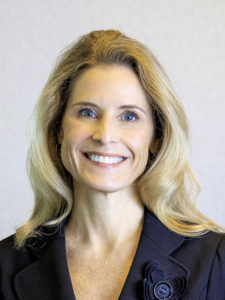 Read Part 4, “The Role of the Professional Fiduciary,” here.
Read Part 4, “The Role of the Professional Fiduciary,” here.
When I am asked if Sharpe has marketing materials designed for professional advisors, I respond with this question:
“What is your goal in marketing to professional advisors?” Here’s why.
If your goal in marketing to advisors is to have them suggest your organization as a charitable beneficiary to their clients, this simply does not happen. The scenario of an attorney telling a client that they would benefit by making a charitable gift and the client responding with, “Okay, who should I give it to?” is not realistic.
Educating advisors about the benefits of charitable giving, however, is a worthy goal. We know that virtually every bequest provision and 90% of all other planned gifts will require a professional advisor, whether it be an accountant, attorney or professional advisor. By communicating with advisors, you can position your organization as one that is known to be informed and competent so as not to slow down or impede their clients’ charitable plans. As in every aspect of successful fundraising, it’s about building relationships.
Make a plan
A good first step with every donor interaction is to ask, “Do you have a trusted advisor with whom you work?” You can then begin building a database of those names and start engaging with this list by providing educational materials and creating networking opportunities.
Some of my clients mail a personalized copy of Sharpe’s Federal Tax Pocket Guide each year to their advisor network. Materials such as these can present your organization as a capable partner, one that will make meeting a client’s charitable goals a smooth and rewarding process for all.
Networking opportunities can serve two purposes: growing your advisor list and providing your donors with valuable estate planning information. Ideally, your board has representation from an accountant, attorney, financial advisor or insurance executive. Meet with them and learn about their business. Highlight their work by inviting donors to a panel discussion where each advisor discusses their role and their connection to your organization.
Another idea is to look for professional affinity groups in your city. Often, a local estate planning council will have a membership segment for nonprofit professionals. These meetings are an excellent opportunity to build relationships and learn about trends and concerns in the financial and estate planning fields.
Approach building your professional advisor network much like you approach building donor relationships with the additional focus of being respectful of the advisors’ time and bringing them something of value with each interaction.
“The Role of the Accountant” is part five in the five-part blog series “Getting To Know the Advisors” by Kristin Croone.
Kristin Croone, JD, is a senior consultant who assists her clients with estate settlement as well as provides advice and develops strategies for successful gift planning programs. Connect with Kristin at kristin.croone@sharpegroup.org or via LinkedIn.
Sharpe’s annual “Federal Tax Pocket Guide” makes an ideal piece to share with advisors in your area. Featuring updated tax and financial figures, these comprehensive guides are ideal for your advisor network of attorneys, trust officers, financial planners and accountants.


